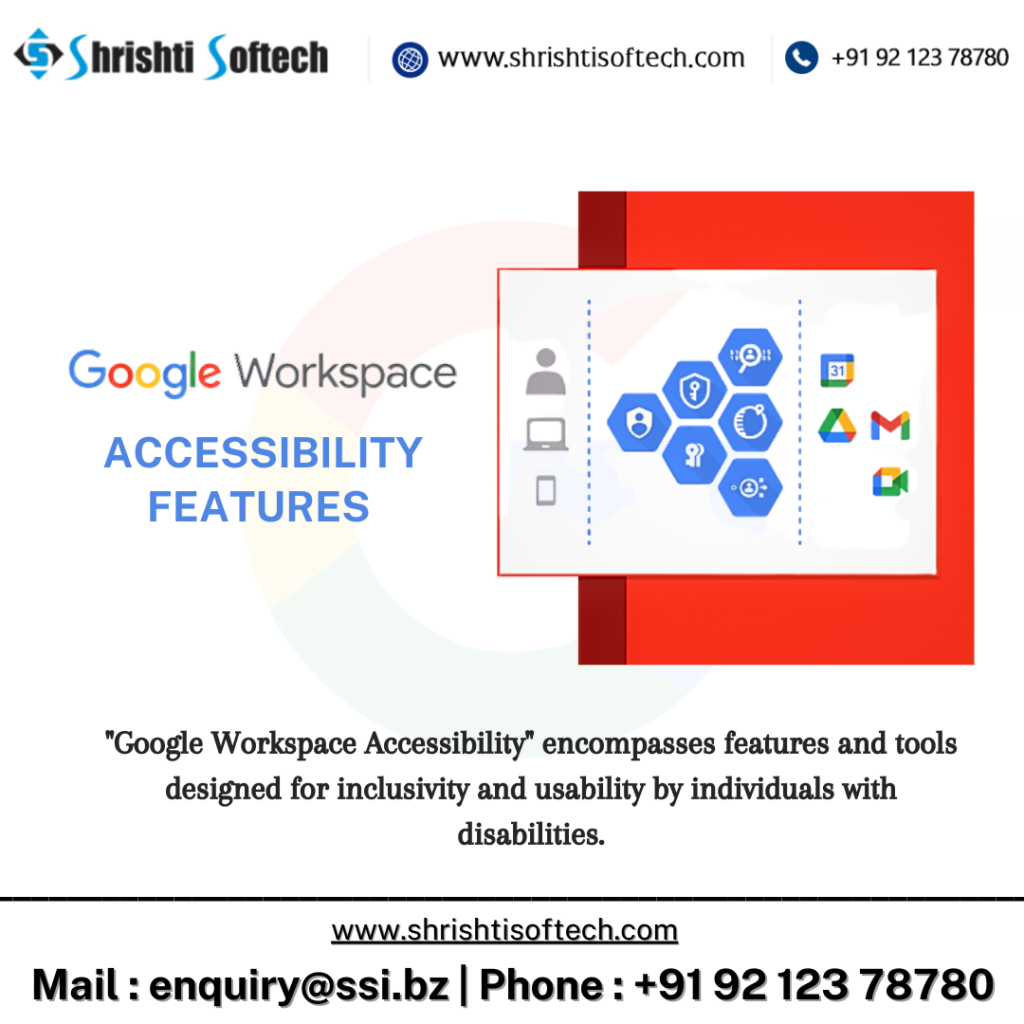
In today’s digital age, inclusivity is paramount. With the increasing reliance on technology for work, education, and communication, ensuring that everyone can participate is essential. Google Workspace, a suite of productivity tools offered by Google, is at the forefront of promoting accessibility. In this blog post, we’ll explore some of the accessibility features in Google Workspace and how they empower individuals with disabilities to be productive, collaborative, and connected.
Screen Reader Compatibility
Google Workspace applications, such as Gmail, Google Docs, Sheets, and Slides, are designed to work seamlessly with popular screen readers like JAWS and NVDA. This enables visually impaired users to navigate, create, and edit documents with ease. The built-in support for keyboard shortcuts further enhances accessibility.
Voice Typing in Google Docs
Voice Typing is a game-changer for individuals with motor disabilities or those who find it challenging to type. With this feature, you can dictate text, format documents, and even add punctuations using only your voice. It not only increases productivity but also reduces physical strain.
Live Captions in Google Meet
Google Meet, the video conferencing platform integrated into Google Workspace, offers live captions. This feature is immensely helpful for individuals who are deaf or hard of hearing. It automatically transcribes spoken words into on-screen captions, ensuring that all participants can follow the conversation.
High-Contrast Mode
Google Workspace provides a high-contrast mode that makes it easier for individuals with low vision to read and navigate through documents, emails, and other content. This feature enhances the visibility of text and user interface elements, reducing eye strain.
Braille Support
Google Workspace supports Braille displays, ensuring that individuals who are blind or have visual impairments can access and interact with documents, spreadsheets, and presentations. This support extends to both desktop and mobile devices.
Accessibility Checker in Google Slides
Creating accessible presentations is a breeze with the Accessibility Checker in Google Slides. This tool scans your slides for potential accessibility issues and offers suggestions to improve content readability for all users, including those with disabilities.
Customizable Fonts and Text Sizes
Google Workspace lets users customize fonts and text sizes, making it easier for people with dyslexia, visual impairments, or other reading challenges to tailor their workspace for optimal readability and comprehension.
Keyboard Shortcuts
Google Workspace offers a wide range of keyboard shortcuts, enabling users to perform tasks quickly without relying on a mouse. This is particularly beneficial for people with mobility impairments who may have difficulty using a traditional mouse.
Accessible Forms and Surveys
Google Forms, a component of Google Workspace, allows you to create accessible surveys and forms. You can add alternative text to images, use skip logic for a more tailored experience, and ensure compatibility with screen readers.
Conclusion
Google Workspace’s commitment to accessibility is commendable. By providing a wide array of features and tools that cater to the needs of individuals with disabilities, it promotes inclusivity and empowers users to reach their full potential. These accessibility features not only benefit individuals with disabilities but also enhance the overall user experience for everyone. As the digital landscape continues to evolve, Google Workspace’s dedication to accessibility sets a benchmark for other productivity platforms to follow.
